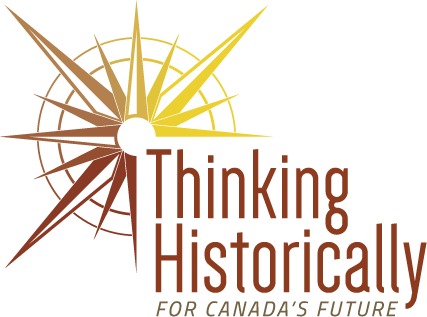New Post: Thinking Outside of the Classroom – A Student Investigation into History Education written by former co-op student, Heeva Torabi:
Over the course of my time in high school, I have become passionate about helping others to be civically engaged in their communities. I was accepted into the IB (International Baccalaureate) program in high school in Waterloo, Ontario. By grade 10, I had started a project called Learn 2 Lead which provides children (age 9-11) opportunities to find their passions while also becoming young leaders in their communities. But, I wanted an opportunity to conduct research about civic engagement.
Despite only being in grade 10, I did a search of University of Waterloo professors who had expertise in civics and came across Dr. Kristina Llewellyn. In 2023, I emailed Dr. Kristina R. Llewellyn, who at the time was a Professor at UW (now at McMaster University) and who is an executive member of the Thinking Historically for Canada’s Future project. I was immediately interested in the project’s focus on civic engagement and history. Dr. Llewellyn, with her doctoral student Mallory Davies, recognized my passion for the subject and offered to take me on as a co-op position and later for hours as part of my IB requirements.
Over the last year, I conducted a literature review of twenty articles and book chapters, published from the 1990s to the present, that focus on civic engagement in history education. I analyzed each article for their research questions, arguments, theoretical frameworks, methodologies, findings, and for my own reflections. After completing my reviews, I created a ‘deep dive’ that identified patterns across the literature.
I found in my ‘deep dive’ of the literature that scholars have shown all the ways in which historical narratives play a key role in shaping youth civic identities today. This was an important finding for me, as a student who is part of a school environment that has a very diverse student population. To offer just one example from the literature, Taivalantti et al. (2022) highlight how factors such as “place of residence, language, origin of parents and the school [that young people] attend influence their construction and interpretation of historical narratives” (p. 11). They argue that history education is political – it can create divisions if historical narratives are of a fixed national identity, or it can embrace global diversity by asking youth to recognize their different historical social narratives. The authors conclude the article by offering strategies for history education, which includes giving students the chance to create their own understandings of the past and not simply accepting existing ones.
All the literature taught me that history and civics are far too often isolated in schools. What is needed is historical perspectives that directly tie youth today to their sense of self and to how they can be leaders today and into the future. This is probably the greatest takeaway from my role as a research assistant. Thinking Historically for Canada’s Future has given me a rare opportunity as a high school student to become far more knowledgeable about how history is critical for civic action. I hope to use what I have learned to encourage those around me to engage with the past to understand better the difference they can make in the world. Now in my final year of high school, I know that I will take the lessons from this project with me when I enter university and throughout my civic engagement work.
Reference:
Taivalantti, T., Norppa, J. and Marti, A. (2022) ‘Narrations of (in)significant pasts in young people’s identity construction.’ History Education Research Journal, 19(1), 1-15.
